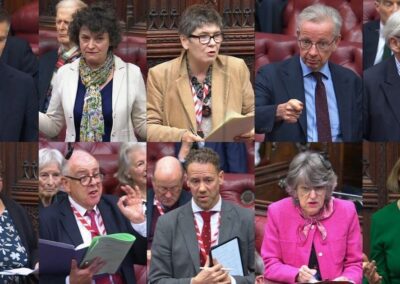The Health Secretary has ordered a review of the costs of implementing assisted suicide if Kim Leadbeater’s assisted suicide Bill is passed later this month, warning of a “chilling” scenario in which patients are pressured into ending their lives, and saying assisted suicide would “come at the expense of other choices”.
In the same week as Kim Leadbeater published her Terminally Ill Adults (End of Life) Bill ahead of MPs voting on it on 29 November, Wes Streeting has asked his department to produce a detailed report on the cost of assisted suicide were it to become legal and has raised concerns that cuts will have to be made elsewhere in the NHS.
“I would hate for people to opt for assisted dying because they think they’re saving someone somewhere money, whether that’s relatives or the NHS. And I think that’s one of the issues that MPs are wrestling with as they decide how to cast their vote”, he said.
Implementing assisted suicide means cutting back on other services
Speaking to reporters at the NHS Providers conference in Liverpool, when asked about Leadbeater’s Bill he said “Now that we’ve seen the bill published, I’ve asked my department to look at the costs that would be associated with providing a new service to enable assisted dying to go forward”.
“That work is now under way, so I can’t give you a precise figure today. You do touch on… the potential for cost savings if people choose to opt for assisted dying rather than stay in the care of providers or the NHS. I think that is a chilling slippery slope argument”.
Delivering assisted suicide would “come at the expense of other competing pressures and priorities”, he added.
Earlier on Wednesday, Streeting told Times Radio that “Those choices [to implement assisted suicide] would come at the expense of other choices”.
“To govern is to choose. If parliament chooses to go ahead with assisted dying, it is making a choice that this is an area to prioritise for investment. And we’d have to work through those implications”.
There has been some controversy over Streeting’s comments with UK Editor of ITV News, Paul Brand, reporting on X that “MPs tell me Wes Streeting has upset a fair number of colleagues today with his further interventions on assisted dying”.
Responding to Brand’s comments, Sonia Sodha, writer at the Observer and a Guardian/Observer columnist, said that it is “right for Wes Streeting to ask his department to estimate the resource implications of legalising assisted dying for the NHS – it’s very striking it’s not been done, for govt legislation it would have been. It’s info MPs need to form a view on the bill”.
“If this [Streeting’s report request] is what MP colleagues are upset about, it’s a bit worrying”.
The Cabinet remains deeply divided on assisted suicide and even the Prime Minister, who previously voted in favour of making assisted suicide legal in 2015 and has been an outspoken supporter of a change in the law since, has now said he has not decided how he will vote.
Spokesperson for Right To Life UK, Catherine Robinson, said “The Health Secretary is right to suggest assisted suicide will come at the cost of other services. Available services should be directed towards assisting people at the end of their lives to live, not to die”.












